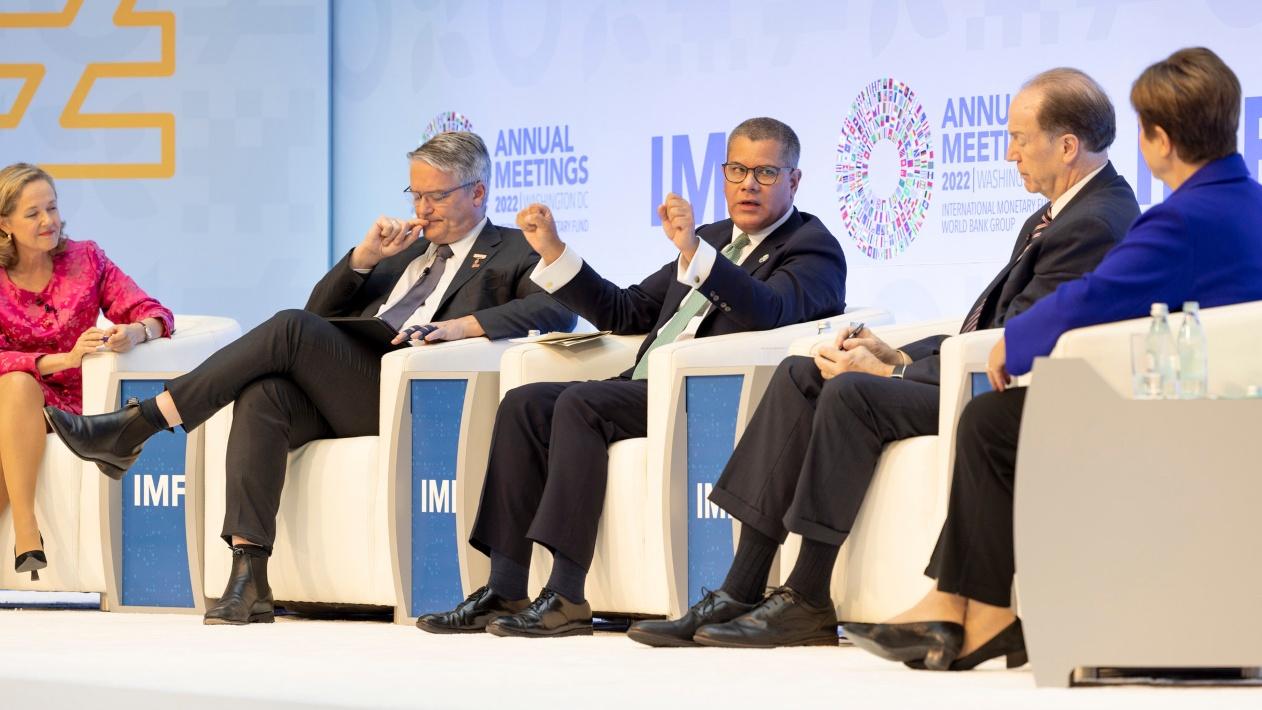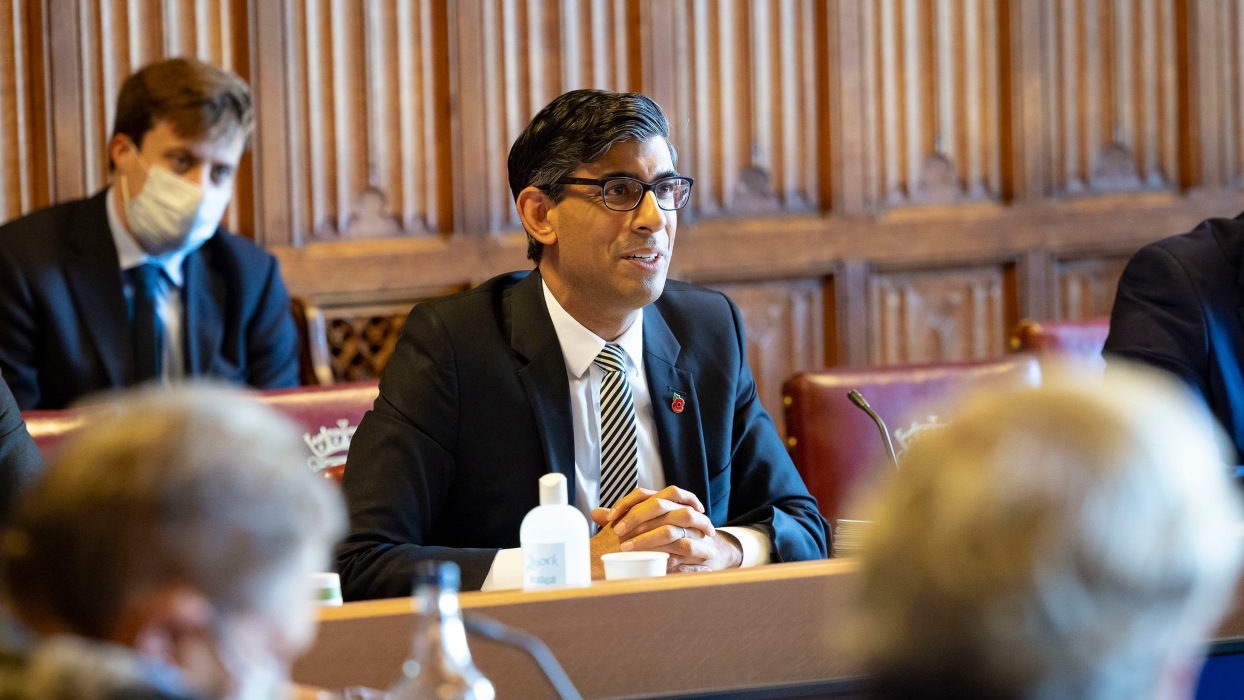 Rishi Sunak has spent most of his brief time in the political limelight reacting to extraordinary crises. As a result, his own political agenda remains ambiguous. Although the Prime Minister has consistently championed a more innovative, high-tech economy, such ideas have in the past been used to justify austerity as well as social investment in education, skills and research. Thursday’s Autumn Statement, says Nick O’Donovan, will reveal whether Sunak intends to match his earlier rhetoric with hard cash.
Rishi Sunak has spent most of his brief time in the political limelight reacting to extraordinary crises. As a result, his own political agenda remains ambiguous. Although the Prime Minister has consistently championed a more innovative, high-tech economy, such ideas have in the past been used to justify austerity as well as social investment in education, skills and research. Thursday’s Autumn Statement, says Nick O’Donovan, will reveal whether Sunak intends to match his earlier rhetoric with hard cash.
Rishi Sunak’s short political career has been packed with contradictions. Since becoming an MP in 2015, the new Prime Minister has been a Brexit-supporting internationalist, a self-professed Thatcherite who proposed increasing taxes to unprecedented peacetime levels and a fiscal conservative who presided over a colossal increase in the national debt. To some of his supporters on the right (and critics on the left), these contradictions were purely a product of circumstance: the extraordinary disruption of the pandemic coupled with Boris Johnson’s spendthrift tendencies. To others, they suggest a more compassionate and pragmatic conservatism beneath Sunak’s typical Tory posturing. Thursday’s Autumn Statement is his first (and perhaps only) chance to show voters what he really stands for.
This much is clear: over the last two years, Sunak has repeatedly espoused a vision of Britain’s economic future in which science, innovation and technology figure prominently. He has consistently praised the entrepreneurial culture of ‘Silicon Valley start-ups’ and waxed lyrical about his time spent ‘working around technology companies in California’. According to his Autumn Budget speech in 2021, replicating that culture of innovation across the UK would mean faster productivity growth and higher wages.
The policy space for investment in skills and innovation
So what does that vision require in policy terms? For some on the right, the answer to that question might involve cutting taxes, rolling back the state and making room for markets to work their magic. Sunak, by contrast, appears to recognise that government has an active role to play in ‘investing in infrastructure and innovation’ as well as ‘providing a world-class education’ to British citizens. In his February 2022 Mais lecture (overshadowed by Russia’s invasion of Ukraine that same day), Sunak namechecked the economist Paul Romer. Romer, a professor at Stanford while Sunak was there studying for an MBA, is a leading proponent of ‘endogenous growth’: an economic theory that views public investment in education and research as vital to prosperity.
According to Romer, such investments produce new knowledge, unlocking productivity gains for society as a whole over and above the financial returns they generate for the individuals and firms that undertake them. Private incentives thus do not reflect the full economic benefits of spending on education and research, meaning that the decisions of self-interested private actors will result in socially suboptimal levels of investment. If government makes up the shortfall, it can push up the rate of growth.
Sunak’s praise for Romer is a little surprising, given the Nobel Prize winner’s work has historically been associated more with the centre-left than the centre-right. In the 1990s, Romer and other ‘new growth’ theorists were cited by Third Way politicians as they sought to justify increased spending on public services (and education in particular). In 1994, then-Shadow Chancellor Gordon Brown even included a reference to ‘post-neoclassical endogenous growth theory’ in a speech. However, in more recent years right-wing politicians have begun to adopt this rhetoric too. Addressing an audience in Washington in 2014, George Osborne acknowledged ‘that there is a positive role for government in the economy’, asserting that in the UK ‘the most economically valuable spending… on science and education’ had been shielded from cuts.
A close reading of the underlying economic theory reveals that its precepts are compatible with austerity as well as social investment. If investment necessitates borrowing and borrowing leads to higher interest rates, this will deter spending on skills and research, ultimately undermining growth. It is easy to forget that many of the original centre-left supporters of a high-tech economy back in the 1990s advocated fiscal discipline for precisely these reasons. A promise to keep ‘interest rates as low as possible’ even made it on to the ‘pledge card’ that Labour handed out ahead of the 1997 election.
The Autumn Statement will reveal whether Sunak plans to return to the social investment agenda pursued by Brown, or whether he will instead prolong Osborne’s fiscal squeeze. The new government may choose to offer warm words rather than substantial resources to priority areas such as skills and research. But it could also reconcile fiscal discipline with social investment by raising taxes.
Over the last few weeks, a dizzying range of revenue-raising measures have been floated by anonymous sources supposedly close to Downing Street: a windfall tax on energy profits, reforms to the tax treatment of (generally very wealthy) non-domiciled individuals, council tax hikes, taxing capital gains and dividends at the same rate as employment income, as well as a freezing of tax thresholds that would drag more people into higher tax brackets. Some permutations of the above would raise enough cash to cover any supposed fiscal shortfall, with money to spare for additional spending. This tactic would be highly attractive to Sunak politically: limiting Labour’s room for manoeuvre by pre-emptively introducing (and spending) tax rises they might otherwise champion. But it would also put him on a collision course with an unruly parliamentary Conservative Party that already views his tax-raising tendencies with suspicion.
Sunak does, however, have a further option at his disposal. Economists have long noted the absurdity of fiscal rules that permit governments to borrow to invest in physical forms of capital (roads, buildings, machines) but not human capital (skills, education, health). The present-day separation of public expenditure into ‘current’ and ‘capital’ spending is ultimately only an accounting convention. By relaxing the limits governing certain kinds of educational investment, Sunak could easily create the fiscal headroom he needs to finance his economic vision. Thursday’s Autumn Statement will reveal whether he genuinely wants to do so.
_____________________
About the Author
 Nick O’Donovan is Head of Policy and Impact at the Future Economies Research Centre, Manchester Metropolitan University. His new book, Pursuing the Knowledge Economy: a sympathetic history of high-skill, high-wage hubris, is available now in paperback.
Nick O’Donovan is Head of Policy and Impact at the Future Economies Research Centre, Manchester Metropolitan University. His new book, Pursuing the Knowledge Economy: a sympathetic history of high-skill, high-wage hubris, is available now in paperback.
Photo: Prime minister Rishi Sunak arrives at No10 Downing Street 25/10/2022. Picture by Rory Arnold / No 10 Downing Street. Licensed under CC BY-NC-ND 2.0.






